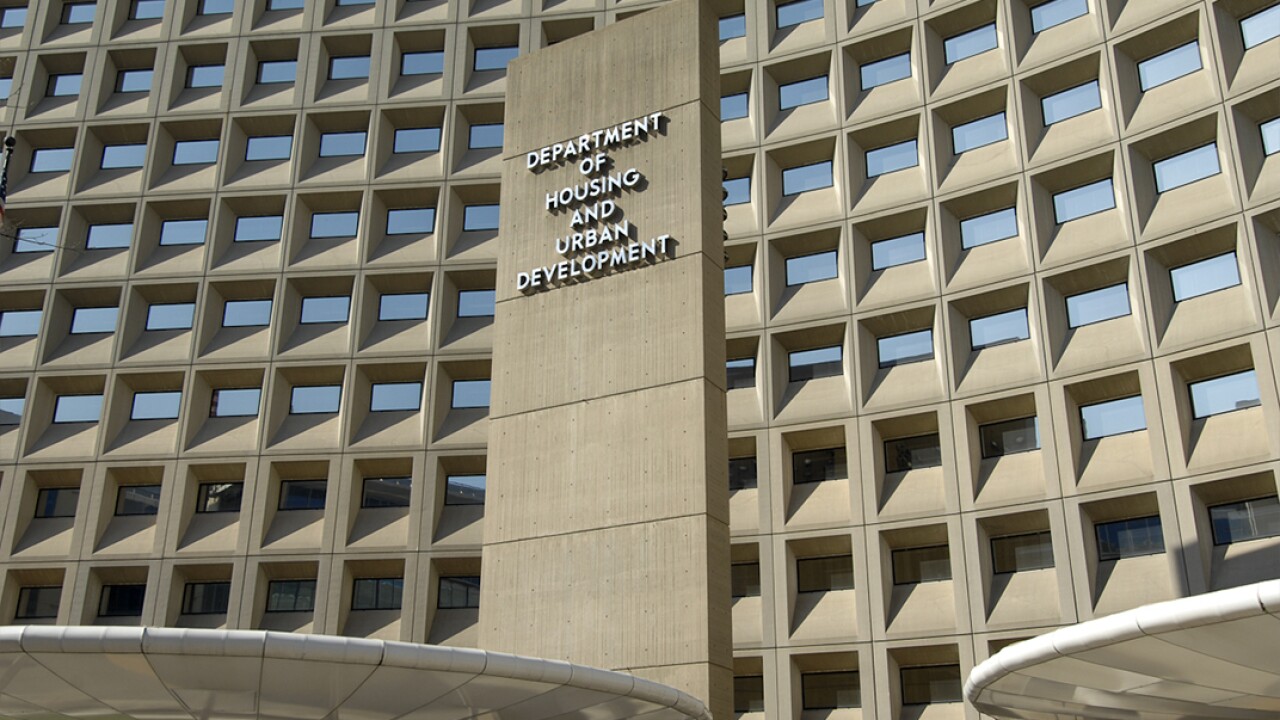Almost seven years after the financial crisis, bond investors are rediscovering their appetite for new debt tied to the housing market.
Issuance of home-loan securities that don't have government backing has accelerated this year to more than $32 billion from $18 billion a year ago, according to data compiled by Bloomberg and Bank of America Corp. This time around, investors are mainly buying types of bonds that weren't around when the debt helped spark the crash, such as securities tied to defaulted mortgages and rental homes.
The recovery in housing is luring investors back to a market that unraveled amid soaring defaults and tumbling home prices. The revival is helping to reduce taxpayers' risks and boost the profits of private-equity firms, real estate investment trusts and hedge funds — and is poised to do more to aid home buyers.
"The market's healing," said Chris Hentemann, managing partner of 400 Capital Management, a hedge fund that oversees more than $1.6 billion. "You've got all the different cylinders starting to fire again."
While bonds are being sold at the fastest pace since 2007, issuance remains a fraction of the more than $1 trillion sold annually before the crisis.
Still, the expansion reflects both an evolution of the $9.4 trillion mortgage market and lingering opportunities from the slump. There's "clearly demand for mortgage credit risk," according to Urban Institute researcher Laurie Goodman.
The biggest source of supply is coming from deals tied to loans that were granted before the crisis and then soured. Traditional securities that package new mortgages made to homeowners are also growing again, as are nascent markets for rental-home securities and risk-transferring notes from taxpayer-backed Fannie Mae and Freddie Mac.
The housing recovery remains uneven. April data showed industry sales momentum was spotty at the start of spring. However, in April and May builders began work on the most houses during any two-month period over the past seven years, according to a Commerce Department report Tuesday.
With banks and other sellers offloading more bad loans left over from the crash, bond issuance tied to nonperforming or once-delinquent mortgages has risen to $13 billion this year from $9 billion in the same period a year earlier, according to Bank of America data.
The transactions are increasing this year after Fannie Mae and Freddie Mac also began selling delinquent mortgages. Investment firms such as Lone Star Funds, Pacific Investment Management Co. and Angelo Gordon & Co. are buying the bad loans and packaging them into bonds, holding onto the riskiest and highest yielding portions of these deals.
The only recent mortgages to homeowners being packaged into bonds without government backing are those that are the highest quality and too large for taxpayer-tied programs. Last year, issuance linked to such jumbo mortgages slowed as banks sought to hold this debt on their own books.
Issuers including hedge fund Premium Point Investments' WinWater Home Mortgage are competing harder with banks to buy loans. WinWater, for example, argues that it offers better service and faster feedback as lenders work with borrowers.
"Sometimes a quick 'no' is better than a drawn out 'yes,'" said Ketan Parekh, WinWater's head of capital markets. His firm has issued about $2 billion of jumbo bonds since 2014.
Sales of jumbo bonds have climbed to $7 billion in 2015 from $2 billion a year ago, according to Bank of America data.
The total amount is still "piddling" next to the pre-boom levels in 2001 and 2002, which exceeded $140 billion, Goodman said.
Issuance of rental-home bonds has expanded to more than $5 billion from $3 billion at the start of last year, according to Bloomberg and Bank of America data. Big landlords, including Blackstone Group's Invitation Homes, are using the market to borrow against properties they bought after housing crashed in 2008. Those deals are typically tied to one borrower. This year also saw the first two deals bundling loans to smaller landlords.
"It's pretty clear that market is going to increasingly evolve toward the multiple-borrower space over time," said John Beacham, president of Blackstone's B2R Finance, a lender to such operators.
In another nascent market, issuance of risk-sharing notes by Fannie Mae and Freddie Mac has climbed to $6 billion from $4 billion a year earlier, according to Bank of America Corp. data. The government-backed companies are increasingly relying on the deals to reduce their potential losses on loans from the mortgage bonds that they guarantee.
While securities backed by riskier mortgages haven't returned since the crisis, new loans are being made and investors say a revival in the bond market may follow.
An investment firm run by Ellington Management Group, a specialist in mortgage bonds, expects to begin buying loans made using bank statements to assess the income of borrowers, such as self-employed individuals, Mark Tecotzky, the firm's chief investment officer, said at a Keefe, Bruyette & Woods conference on June 2. Those are often considered riskier than assessments relying on pay stubs and tax returns.
Ellington isn't sure whether riskier loans will make much of a comeback given a fairly wide range of borrowers can qualify for government-backed programs, Tecotzky said.
The mortgages are indeed being made and starting to trade, though "it's a very low-volume sub-sector of a low-volume market right now," said 400 Capital's Hentemann.





